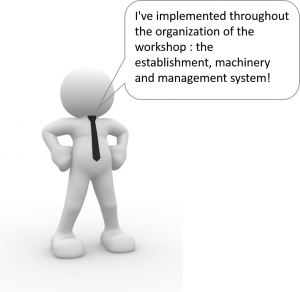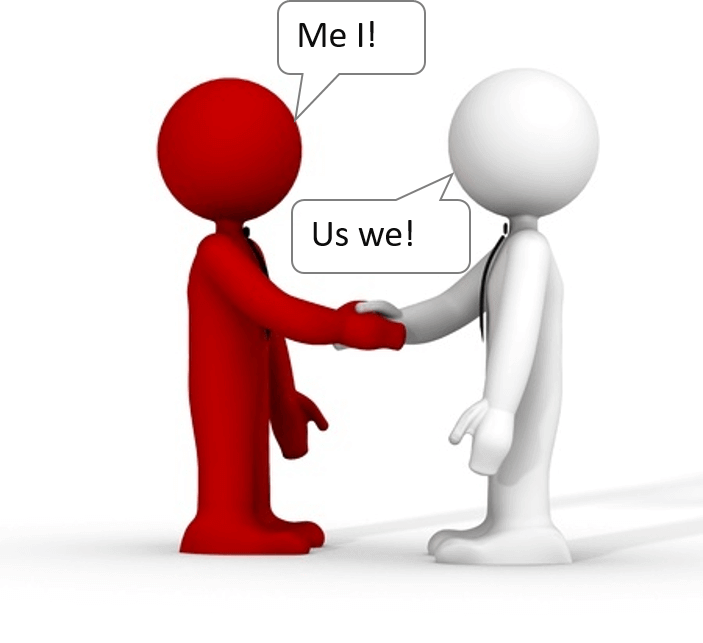In a business, it is possible to classify managers in “Me I” and “Us we”.
In my intervention in business, I actually meet these two types of managers. From the first conversations with them, from the first visit in the workshop and the early discussions with staff, evidence of the “I” or “We” bring out immediately.
But who are they and how to recognize them?
“Me I”
The “Me i” is one that will never speak about its employees or very little. When he speaks (to third parties , with his head, or even in front of his colleagues), he will always speak in the first person and bring everything to him. He has made everything: he decided, studied, evaluated and still he has established “by himself”.
During a mission in business for setting a lean assembly workshop, we worked with all employees and conducted the complete reorganization. What was not my surprise, but especially the frustration of employees, when at a meeting with senior management, technical production manager, who had never participated in any meetings on the project, explained that he had completely reorganized the workshop!
This type of management demotivate employees. A business manager quickly detects this type of manager. He knows that all is not led by one person. The “Me I” are people who rarely say thank you. They rarely encourage their employees (why, since it is the manager who did!).
The “Me I” are the same as the “Them they” Indeed, if the project does not go well, if problems arise, it is never their fault. They take ownership of the successes, but never failure.
We can summarize thus: “Me, I” do well, “Them they” do not do well !!!
 “Us we”
“Us we”
The “Us we” is the one who shares. He shared both the successes and failures. When he talks about the achievements made in his service, he will speak of his employees and on behalf of his employees. He will say “We”. This is a true leader.
During a mission in company where the production manager was a real “We we”, the objective was to reorganize a machinenering workshop to work by order. The production manager participated in the team project. He was involved in it, but he also left many initiatives to his employees. He listened. This reorganization was presented to outside people of the company. The responsible production involves other people and when he spoke, he always spoke in times that “We”
This type of team management unites and motivates employees. He thanks, he encourages, he motivates and if necessary he blames, but justifying them. This is the type of manager who makes advance teams.
The “Us we” share the successes but also share the failures. They even agree to assume and do not reject on the others.
We can summarize thus: “Us we” win or lose together !!!
Conclusions
 2 opposite behavior. The “Us we” federates his teams. He allows everyone to progress. And therefore he allows the company to move forward. The “Me I” makes more individual people, he puts a barrier between him and his team. He stagnate, if not decline his employees but also the company.
2 opposite behavior. The “Us we” federates his teams. He allows everyone to progress. And therefore he allows the company to move forward. The “Me I” makes more individual people, he puts a barrier between him and his team. He stagnate, if not decline his employees but also the company.
These attitudes are reflected in sports. Remember Aime Jacquet, the coach of the France team football in 1998. He wanted to make “a team”. He chose as captain Didier Deschamps who was a “Us we” at the expense of Eric Cantona who was a “Me I”. The result was a World Cup victory, and not with the team of the bests, but with the best team, and with a captain and a coach “Us we”!


